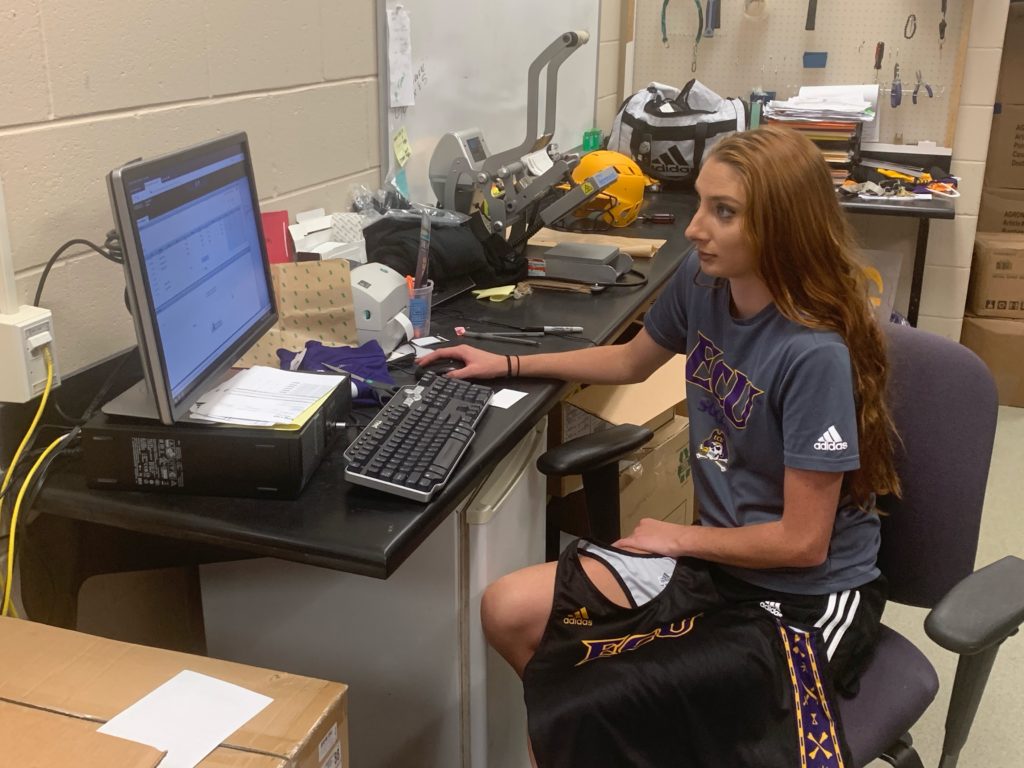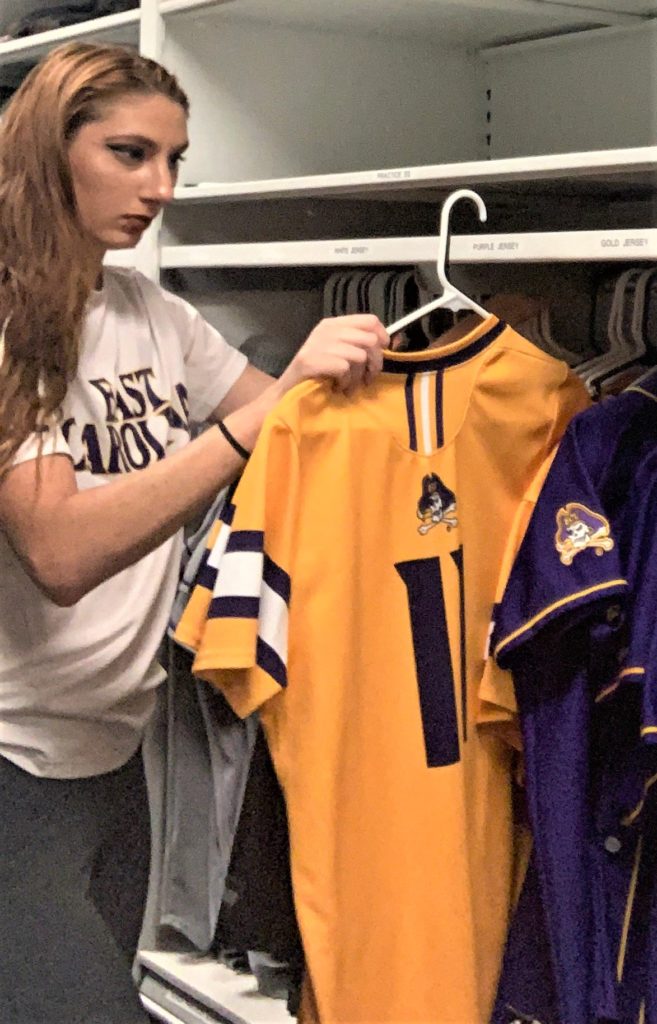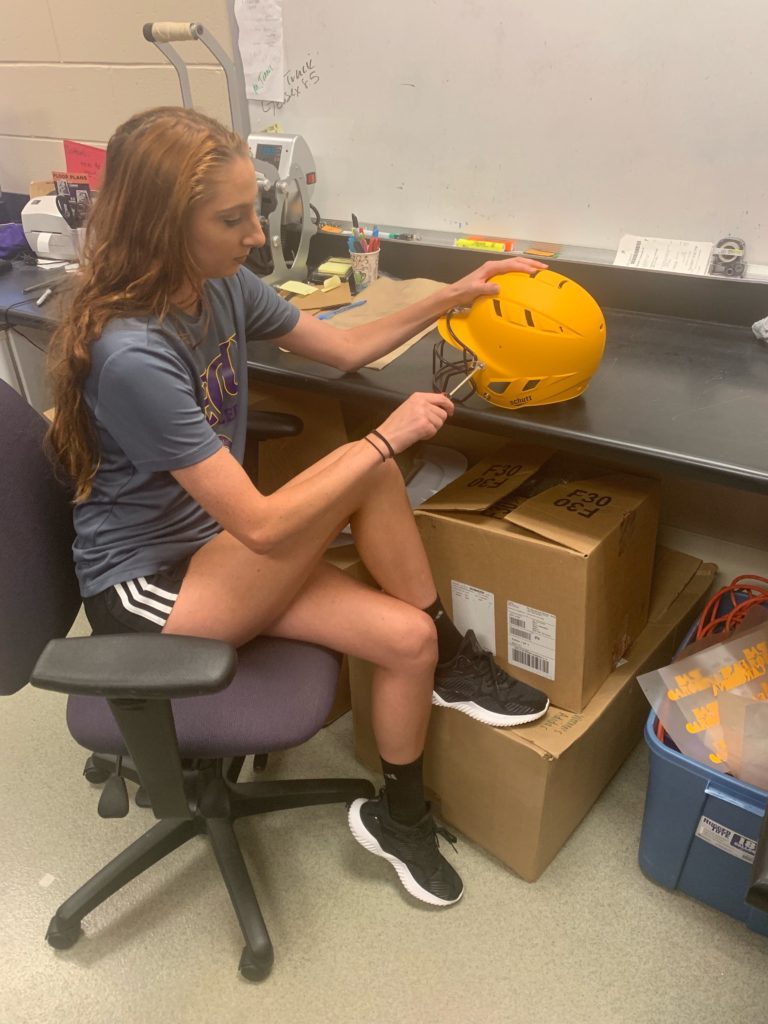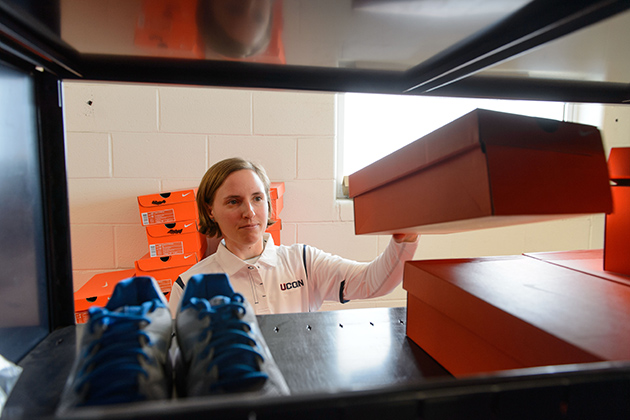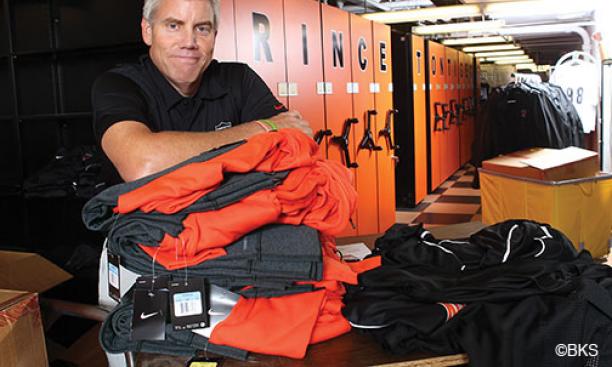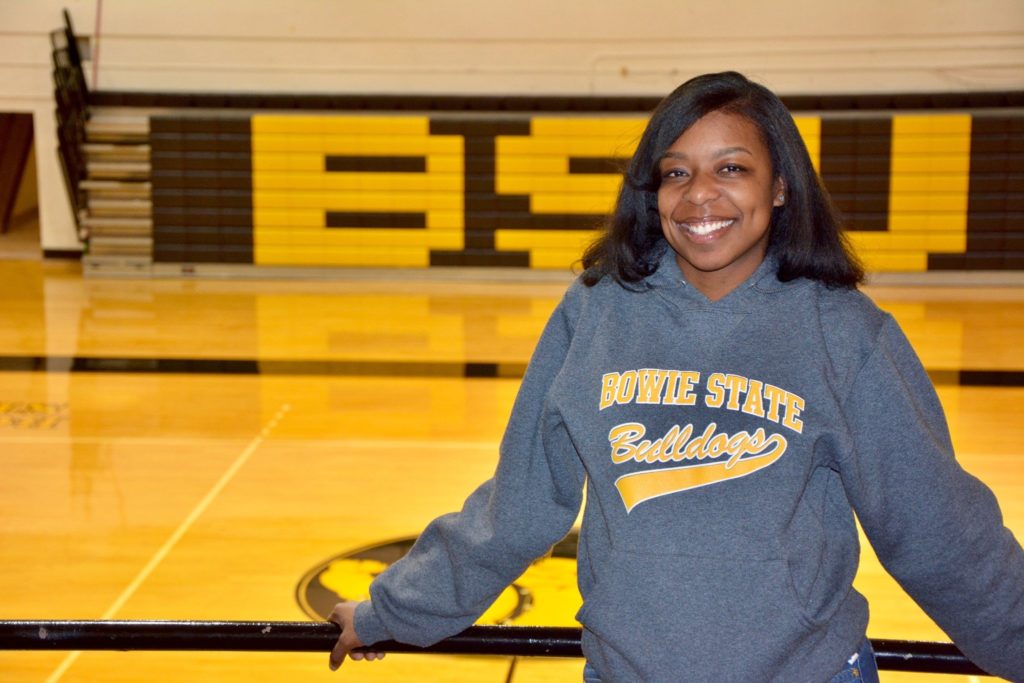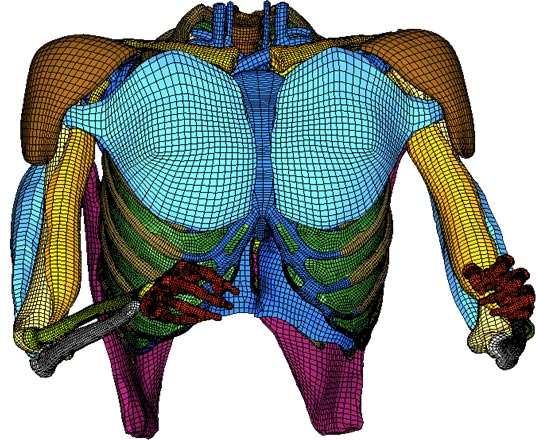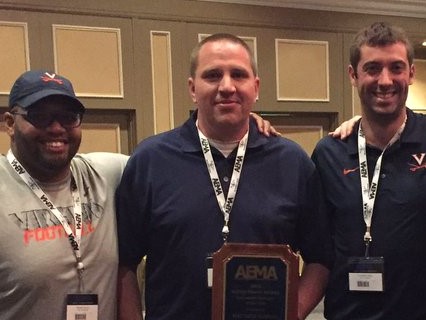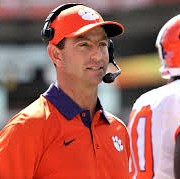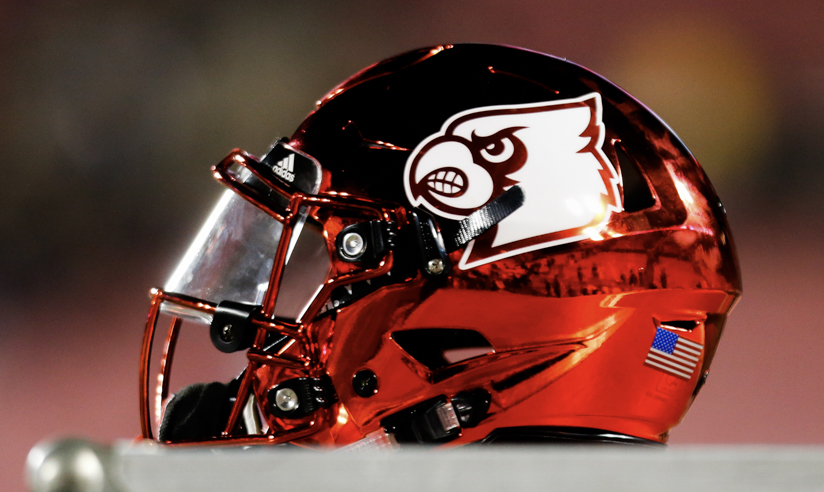Note: Originally Published 3-19-2019
Equipment Managers somehow work with the same amount of time every day to maintain scores of football helmets, shoulder pads, track equipment, and coaches. To say nothing of laundry, communications equipment, and tracking truckloads of apparel.
Each day requires more time, more work, more energy.
And so, Student Equipment Managers were created.
Helmet Tracker talked with seasoned college Equipment Managers to create the Top Seven Things to Look For When Hiring Student Equipment Managers.
7
Use Your Student Equipment Managers' Friends Network.
It's not who you know, but who they know.
“We rely on the students who are here working for us first and foremost,” says Sonny Sanfilippo, Assistant Director of Athletic Equipment Services at San Diego State University. “They know what it takes and it seems these kids have a lot of friends on campus.”
You may not think that your student managers, stuck in the bowls of your facility folding laundry at all hours would have a network of friends, but don't underestimate the bright personality that draws other campus students to your Student Equipment Managers – that and being part of your program.
“They know what the job takes–what it entails. They know it isn't for everyone and takes a special type of person,” Sonny says.
Al Cerbe, Head Football Equipment Manager at Kansas State, said he very rarely has to go out and search for Student Equipment Managers.
“Nine times out of ten I tell my current Student Managers when we have an opening and they go out and recruit.,” he said. Those recruits start to add up. Cerbe has 10 people on a waiting list to work in his equipment room.
6
Resumes, Job History, Activities, Grades
Hiring is hiring. It's not a box of chocolates. You don't have to guess what you are getting. Approach to hiring Student Equipment Managers the same way any supervisor approaches anyone applying for any job.
Require a resume. Check their job history. Pay attention to their extracurricular activities. Look at their grades.
“Grades are important because this job takes a lot of time and if we see you had poor grades in high school, chances are you are not going to have success in college,” says Harley Warren, Assistant Equipment Manager at Southern Mississippi.
At K-State, Cerbe says some things stand out to him on an applicant's work history.
“Kids who work on the farm or help out on a farm, they are usually good working kids,” he said.
5
Interview
Schedule and bring in your candidates for an interview. It amazed us how many Equipment Managers mentioned how carefully they pay attention to how potential Student Equipment Managers dressed for an interview.
“If a kid comes in in sweats and a T-shirt, that's not going to work,” Warren says. “Any job interview you have to take seriously. I've worked in fast food and you still have to dress professionally, especially for the interview.”
At K-State, Cerbe interviews each applicant.
“Yes, I do watch how they dress. When a kid comes in and has khakis on and a nice shirt and even a tie, I notice that and I know that he is serious about it and that gives me a good feeling.
“On the other hand, I had an applicant come in just before Christmas. Flip flops and shorts! I wondered if he thinks this is a funny deal or a way to get close to football. When I explained the amount of work, he said that it wasn’t for him,” Cerbe says. “I wasn't surprised.”
At SDSU, Sonny also interviews applicants and makes sure to try to balance the expectations of the job with the good stuff, too.
“Some of the benefits are the game-day duties, maybe getting some gear, and potentially traveling with the team,” Sonny says. “I am always checking for a sense of urgency in people. Things are very faced paced and coaches will not wait for anybody.
“Aside from that, we want to know if they understand football terminology.”
He tells us the number one issue that always comes up is, you guessed it, laundry.
“When we sit down with someone, we tell them the benefits and what the job entails. We talk about laundry because everyone wants to know. It's simple – you wear gloves and throw stuff into a big industrial washer. It's not difficult, just time-sensitive. It's got to be done when it's got to be done.”
What eliminates a candidate?
Lackadaisical attitude.
Desire to get gear.
Showing up late.
Sonny: “I don't have these guys out here more than they need to be, so that means they will be here on time and be ready to work.”
4
References, High School Coaches, Junior Colleges
Equipment Managers start somewhere and so do Student Equipment Managers. Some managed their high school football team or played in high school or managed at a junior or community college.
“Our Equipment Manager Pat (Patrick Stewart, Assistant Athletic Director for Equipment Operations) knows every football coach in the area and they will send kids to work,” says Warren in Hattiesburg. “I'm starting to get to know them in the area, too, so I am starting to hear from them.”
Some applicants even want to make a career in the Equipment Room, Sonny says.
“These types of people are few and far between. We have a student right now who I wish would do that, but most guys who stay really enjoy doing it for a few years and being part of the team and part of the program,” Sonny says. “The hours are long sometimes and the appreciation is low, plus the pay isn't stellar. Kids recognize all this pretty quickly.”
Shameless plug: Student Equipment Managers preparing to take the AEMA Certification Exam should apply for Helmet Tracker's Scholarship.
3
Twitter, Instagram, and Posters (really).
“We needed four people this Spring. We posted on Twitter and Instagram and got a couple of people through that,” says Sonny. But not enough. The Aztecs needed at least one more Student Equipment Manager, so they got low-tech.
Among the Lost Dog, Apartment for SubLease, Summer Painting Jobs, and Join Our Campus Ministry flyers, Sonny posted his “Student Equipment Manager Needed” flyers. It's different. It's fun. It's an opportunity to be part of Sports on Campus.
It worked.
“We needed at least one more Student Equipment Manager this Spring and so we put up some flyers and got one student that way,” says Sonny.
Just about every program posts their needs on Twitter, says Warren. “I follow most of the equipment programs who are on Twitter and they are all posting for student managers,” he said. “It works.”
2
Tryouts, Especially Spring Ball
This makes or breaks a potential Student Equipment Manager. You know it, but maybe they don't.
Your candidates don't have to know it's a tryout, either. In fact, you may get a better idea of who will fit into your staff best by not calling it a tryout.
“In the Spring, we may give some of them a couple of weeks to volunteer and see how they like it and if it doesn't work out we just tell them thanks and move on,” Warren says.
At Kansas State, Cerbe says bringing high school graduates into summer camps used to be a standard way of finding good Student Equipment Managers, but now more care must be taken.
Cerbe says NCAA rule changes prohibit him from hiring someone with a friendship or relationship with a recruit or player, so hiring through camps has to be a bit more selective. Still, it's a good way to see if someone will work out.
“Camps are a little more laid back and student managers can have a lot of leadership there,” he said. “Now, though, we eliminated incoming freshmen from coming to camps.”
Oh, and remember, your student managers are students first. Most won't pursue a career as an Equipment Manager, so it's best to remember their studies are primary.
“We've got some working for us a couple of days a week and we have to work around class schedules,” Sonny said. “We understand there is a whole life outside of here.”
1
Check the Vibe, Listen to Your Gut
Your potential Student Equipment Managers offer clues about if they will be a positive addition to your staff.
“Sometimes it's a vibe and you can pick up on that,” Warren, at Southern Miss, says. “Sometimes you get a bad feeling or you don't think it's going to work out. When that happens, we won't take them.”
The same is true in Manhattan.
“Trust your gut,” Cerbe tells us. “My gut is pretty spot on.”


